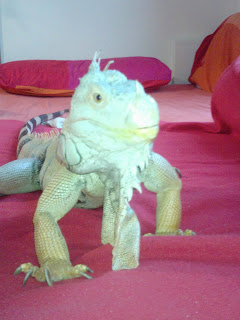As a new author, I see so many other authors on social networking with thousands of Facebook friends, tens of thousands of Twitter followers, and high rankings on ebook sales. With just a couple of short dark fantasy novellas, it’s hard to not feel like a loser sometimes. Facebook screams if I invite a single friend, I used to be called a spammer by Tweeps, (not recently). I’m very grateful to reviewers that like my books, the poll my lead character Shevata won on Goodreads, and the recent NABE award. As a new author, I take nothing for granted.
So why do I sometimes feel like a loser? It’s easier to feel like a loser more than a winner in this industry. So many books get published every year, and with the oncoming digital evolution for readers, a single new author of genre fiction is a tiny fish in the Pacific Ocean. It’s still recommended by many to try the traditional route of publishing, and I’ve yet to decide on trying that again.
There’s good in publishing your books. Completing a manuscript expands the human mind and yields a great sense of accomplishment. Seeing it in book/ebook form with the cover and your name (or pen name) is almost surrealistic at first, for the new author. Then comes the hard part…getting readers. Where’s the magic to that? How can some authors have so many readers of self-published books and others have so few? Are some just better? Maybe. Are some better marketed/promoted? You betcha.
In the film “The World According to Garp,” there’s the scene when Garp and his publisher are seeing Jenny’s books in the bookstore windows, displayed as a huge bestseller. Garp grumbled that his books weren’t selling. The publisher made a profound statement: “Writing is writing, publishing is timing.” I believe there’s some truth to that, which may explain some of the infinite “no’s” from every agent and editor in the traditional publishing industry. As self-published authors, we have a fundamental concept in common with publishing companies: promotion with hopes of leading to sales.
I’ve written before about the issues of promotion, advertising, and spam accusations. As new authors, we promote, and have to be careful to not be pushy for sales. But do we want sales? Come on, be honest, and of course writers want sales of their books. A new author can deny they seek the dream of J.K. Rowling and Stephenie Meyer, but if they’re promoting their work, there’s a dream somewhere.
New authors, we’re not losers. Sometimes that feeling rises, and I say let it pass and keep going. Very few famous writers hit the target with their first novel. Keep writing, keep learning promotion; many are out there to help us. Encourage your fellow writers; I’ve found reading Indie books as well as classics make me appreciate this difficult industry. As long as you don’t give up, you won’t be a loser.



















